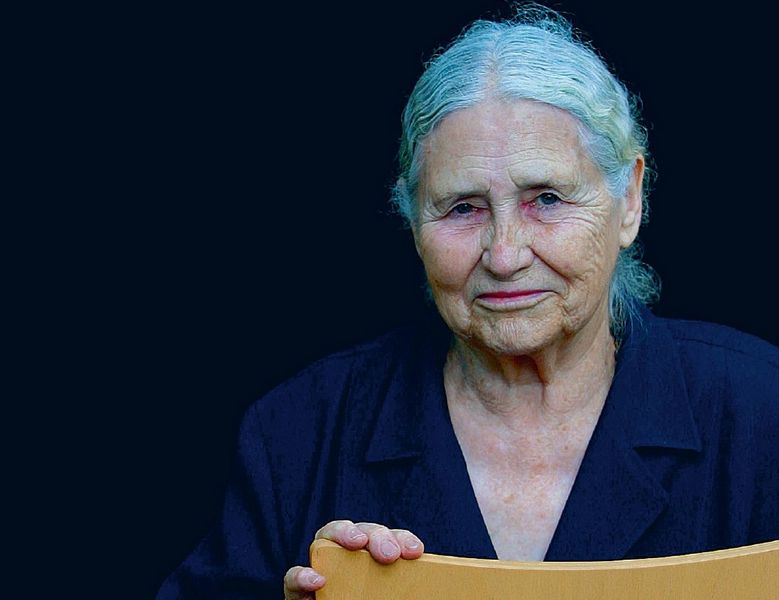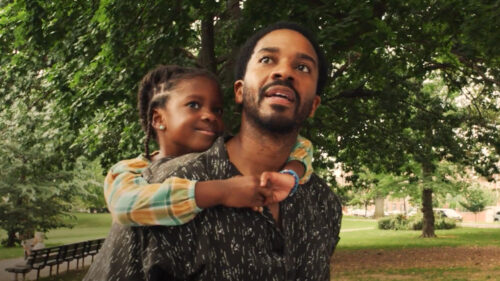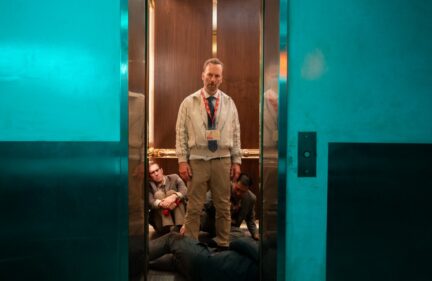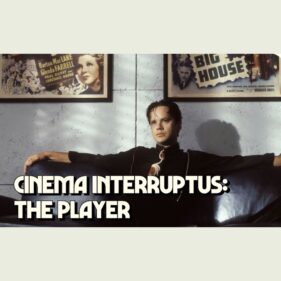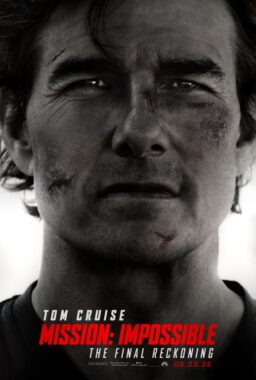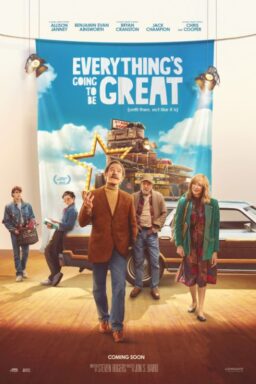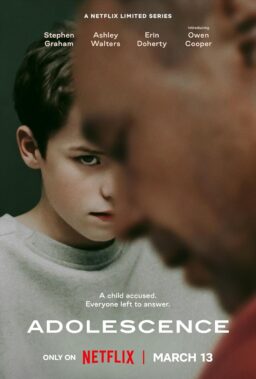Sinking into an overstuffed chair in Studs Terkel‘s apartment with her legs curled beneath her, Doris Lessing looked small, vulnerable (and in the best sense) catlike. It was Sunday afternoon and she was sipping brandy and listening to stories about Studs’ trip to South Africa. And you thought: So this, after all, is Doris Lessing. And the next moment you thought: Of course.
Doris Lessing is the sort of novelist the Village Voice is inspired to describe as a “cult author.” That is completely wrong, but it proves a lead. For 20 years, and especially since the publication of “The Golden Notebook” in 1962. Ms. Lessing has given voice to a postwar generation which has reopened questions of politics, sexuality and personal identity.
Along the way she has been adopted as a hero of the feminist movement, although she feels it suffers from misplaced emphasis. On campuses, she is probably the most respected woman author (having eclipsed Mary McCarthy or Simone de Beauvoir despite her indifference to remaining “contemporary”). But she’s never been a campus fad, doesn’t have a cult and is hardly even a best seller. Only in the past few years, with substantial paperback sales for “The Golden Notebook,” has she been able to support herself entirely by her serious fiction.
Her following tends to be deep rather than wide; those who are familiar with her are likely to have read most of her dozen or so books. They include “African Stories,” “A Man and Two Women,” and the first four volumes of her “Children of Violence” novel series. Doris Lessing was in Chicago this week as part of her first trip to America. It was time to coincide with the publication of “The Four-Gated City,” the fifth and final volume of “Children of Violence.” For 10 days, she said, she camped in a New York hotel room and portrayed the model author for a parade of interviewers.
There were some surprises: “Time magazine, my old enemy, sent the most intelligent reporter of all. But the Village Voice interview was catty and adolescent, like a woman’s magazine.” There was also a bad time when she appeared in Greenwich Village to discuss her work. Three women’s liberation delegations were refused admission to the hall—not enough room—and a large share of the audience expected her to wave the banner of feminism.
“I’m afraid I disappointed them,” she said. “They take ‘The Golden Notebook’ as a statement of feminism, which it’s not. Being a liberated woman isn’t the same as being liberated from being a woman. Men and women have to fight together; there are so many wars more important than the sex war. Sometimes I think the only way to deal with the whole sex thing is to get married, have children, and stay married, not expecting anything more. The only reason to get married is having children. Otherwise men and women should simply live together.”
That wasn’t what the audience wanted to hear. Nor, apparently, is “The Four-Gated City” exactly the novel a lot of her followers wanted to read. It completes the story of her heroine, Martha Quest, who in the earlier books was raised on a farm in a country very like Rhodesia, who became active in left-wing politics during World War II, who joined the Communist Party, and who had just arrived in England from Africa when the fifth novel begins 1949.
Ms. Lessing brings Martha’s story up into the 1960s, but during that time Martha becomes less, not more, political. She shades into middle age, fascinated by mental illness (is schizophrenia in fact an expanded human personality?) and E.S.P. (an evolutionary sixth sense trying to break through modern rationalism?). She survives the paranoia of the Cold War, but arrives at an apocalyptic vision: We are all doomed to be destroyed, one way or another, by the madness already loose in the world.
“The Four-Gated City” is nearly as long as “The Golden Notebook,” and many reviewers have found it too long. “That’s always my fault, that I write too much,” Ms. Lessing said half ruefully. “I don’t know when to stop. But give me credit, I did cut 100,000 words out of this book before publication. The long novel is old-fashioned these days; I suppose. People don’t have time for them.” She didn’t seem bothered that they didn’t.
After the New York ordeal, she flew West to San Francisco. “I walked all over it, and I feel as if I know it. It’s the only way to visit a city. But I didn’t stay as long as I intended. The children of some friends were driving East, and that was my chance to see a great deal of the continent. So we set off.
“I was disappointed by Nevada — somehow I expected it to be reeking with sin — and then we hit the plains. those vast flat prairies no one from England can imagine. Mile after mile. It was during this trip that I began to understand the really serious dislike that the generations in America have for each other.
“My two young friends wore their hair rather long. Not long by British standards, but long. And this caused no end of trouble in restaurants and so forth, where people went out of their way to be rude and stupid. Out in Utah somewhere, we stopped in a roadside restaurant and the people were really hostile. The women were wearing those hideous bouffant hairdos and the men were wearing shiny shirts, and they had the gall to insult these kids. They had no idea they were five or 10 years out of style themselves. I was boiling mad and wanted to make a scene, but the kids wouldn’t let me, and they behaved so beautifully, they more or less won over their enemies.
“Along the way we picked up several hitchhikers, mostly young hippie types, and for the most part they seemed quite civilized. I was glad I had this background before we got to Iowa. I pitched up in Cedar Rapids and spent several days on the campus there, at Coe College.
“And it was literally horrifying to see the hate that exists there (and elsewhere, I imagine) between the generations. Some of the faculty members seemed to hate the students. I’m speaking of literal, uncontrolled hatred. It was inspired, I suppose, by the attacks the students were making on the stupid way things are run.
“On the other hand, I went to an S.D.S. meeting at Stonybrook, in New York, and that was just as discouraging. They were having the same old arguments, the same political in-fighting, that I went through years ago when I was a Communist. To tell you the truth, I’ve gotten so tired of politics, as decade relentlessly follows decade…It’s not that I’ve changed my mind, but that it gets so tiresome to say the same things. The left has gotten so dull, it’s just like the right.”
She came to Chicago from Cedar Rapids, and was delivered into the hands of WFMT’s Studs Terkel and his wife Ida: “Nelson Algren visited me in London and I was to look him up in Chicago, but he’s out of town and so he put me in contact with the Terkels. I was pleased because I admire (ital) Division Street: America (unital) greatly.” And Studs showed her Chicago: Uptown, Skid Row, Maxwell Street, Hull House (“There once was a neighborhood here”), the Robert Taylor Homes, the Loop, the University of Chicago, the lake, the skyline.
“We simply have no idea of Chicago,” she said. “We never think of you as being on a lake, or of the city being beautiful. We think about the gangsters. You do still have gangsters, don’t you?”
“Yes,” Studs said, “but these days they’re mostly in business, or politics.”
Another day, she was taken to see the Impressionists at the Art Institute, and over lunch she talked about British writers and writing. “I hardly know any other writers,” she said. “Sometimes I think you’ve either got to know writers, or write, but not both. The ones I know I’m not terribly pleased with. Kingsley Amis, for example, I despise. He’s become the worst sort of right-wing materialist. I reckon he always had that in him, even when he was part of that Angry Young Man business. I admire Alan Sillitoe, who is still quietly doing good work and sticking to his convictions. And I’m close to Arnold Wesker, whose plays aren’t being produced right now in England—out of fashion for the moment, I suppose—but who is popular in places like Japan.”
She also spoke, with affection and frustration, of Clancy Sigal, the American writer of “Going Away,” who has worked in England for the last decade or so. He is sometimes considered to be the American who turns up at the end of “The Golden Notebook” (although Ms. Lessing discourages autobiographical readings of her books).
“When Clancy writes, he writes in a frenzy,” she said. “I know for a fact he wrote ‘Weekend in Dinlock’ in three days. And when he’s on, there’s no writer who can touch him. But he has these mounds of manuscripts everywhere, and he never does anything about getting them into shape. I saw him again recently, after not seeing him for several years, and I told him he ought to get himself an editor and get organized. But he never does get organized, you know. It’s my belief there’s some of the finest writing of our time buried in his pounds of manuscripts, but he does nothing about publishing it.”
About her own work, Ms. Lessing is less expansive. “I keep on writing,” she said. “I consider that professionalism. But I don’t see the use of it sometimes. I really do believe there’s no use. Sometime in the next few years it’s all going to end. It will be the bomb, or bacterial warfare, or we’ll simply foul our environment beyond help. We’re too stupid to make the decisions we have to make, and so we’ll commit suicide. Sometimes I think man is programmed to destroy himself. So writing novels is a useless occupation. I wonder if small groups of us—of mankind, that is—will survive here and there and be able to carry on. I wonder what the conditions of survival would be. You see, these are absolutely the most important questions but nobody cares about them.”
Despite this profound dread, Ms. Lessing carries on with her work. “I pretend to care about ‘Four Gated City,’ because that’s expected of me,” she said. “But in fact once I’ve finished a book I tend to put it behind me. I’m more concerned with the next one. I’m working right now on another novel, to be titled ‘Briefing for a Descent into Hell.’ It will be fairly short, I think and not like anything I’ve done before. It will be mad and dreamlike…”
* * *
Footnote, 2007: Out of some misguided sense of modesty, I suppressed an element in this story. When Studs gave Doris Lessing the tour of Chicago, I was the driver. That was because Studs, the quintessential city-dweller, had never learned to drive, and wanted me to drive them around. For three days, Studs showed Chicago to Lessing, and to me.
This was one of the great experiences of my life. We saw the hotel at Grand and Wells which Studs’ mother managed, and where he was raised. And the Biograph Theater, where John Dillinger was shot. And one afternoon we drove through Washington Park.
“Stop here!” Studs said. “You see that tree over there? That’s where Studs Lonigan kissed Lucy Scanlon. That’s where I got my nickname — from ‘Studs Lonigan,’ the Chicago novel by James T. Farrell.”
We got out of the car and walked into the park.
“This is where he kissed her, all those years ago,” Studs said.

